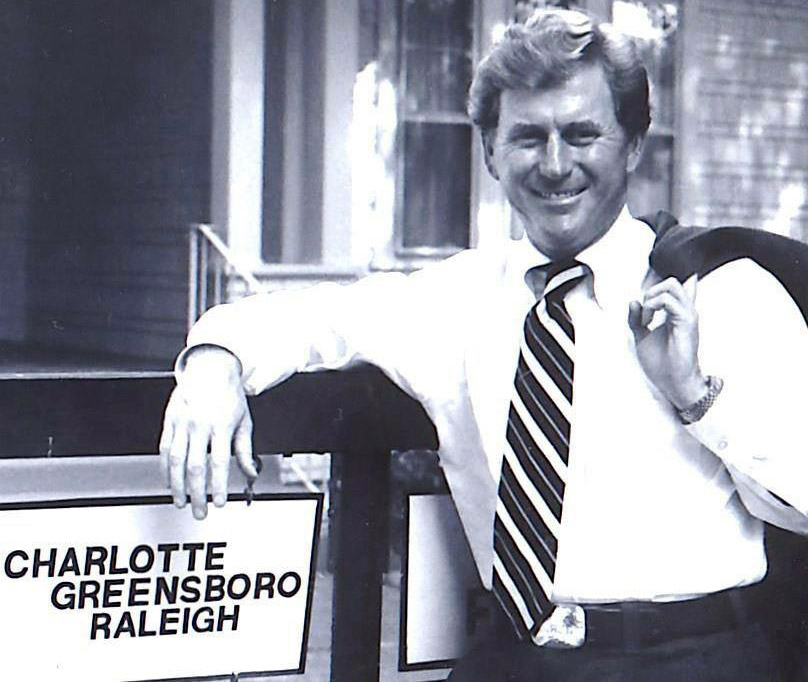
“The key to successful leadership today is influence, not authority.” – Ken Blanchard
Can something like delivering bread be the key to business success? You bet! Sometimes, you may be just the person to do the simplest job.
Case in point. Even though every customer was important, it was always special when I got an appointment with the president of my largest distributor customer. Those meetings could turn to gold – overnight.
That day, Howard, Jr. was giving me his complete attention, at least until his phone rang. His secretary, (that’s what we called them back then,) knew that if it was a customer on the line, Mr. Biggers would want to talk to them.
The call was from a restaurant in Columbia, down the road about 100 miles from his warehouse in Charlotte. From what I could overhear, a case of bread was missing from the customer’s order. The bread had to be delivered before they opened for dinner. Period.
Calmly, Howard, Jr. assured the angry customer that his bread would be at the restaurant’s back door within two hours. That deadline, in itself, would be a challenge on the two-lane Route 21 (the only way to get from Charlotte to Columbia at that time). Traveling up and down that washboard of a road was always slow, and often clogged with tractors returning to the barn in the afternoon.

As Mr. Biggers excused himself, assuring me we would pick it up again soon, I asked why someone else couldn’t deliver the bread?
Why would the President waste his time on such an unimportant task?
His answer made perfect sense as I reflected later, “Of course, Bruce, and that’s exactly what my competitors would do, but not me. By delivering the bread myself, I leapfrog over all of them by miles. This customer will remember today for the rest of his life and it’s his perception that I care about!”
He explained how when people only focus on a transaction, they miss the larger opportunity to build a relationship and how building the relationship creates hundreds of added transactions over time. Not just transactions from this customer but from the customer’s friends who hear the story.
Sometimes the smallest job can be the most important, and the person who should do that “little job” might be the last person anyone else would pick.
I didn’t leave his office with the gold I was hoping for that day, but I found something even more valuable.
Howard Biggers, Jr. was a leader. The old fashioned, roll-up-your-sleeves kind who built businesses, not by authority, but by example and influence. If he could take care of a customer, everyone else could as well.
I can’t say if the restaurant owner in Columbia remembers this story, but I sure do, and it has helped me again and again. I learned how much my customer’s perception mattered, and how it was their perception that created the reality of our relationship. While it was each separate transaction, each order written, and fully paid, that determined my income, it was the many relationships that built my business.
How about you? Tell me about people you see building relationships when their competitors are only completing transactions?
If you have owned or worked in a transactional business, did you have conversations on how relationships could lead to more transactions? Will you tell me about those conversations?
Do you know Howard Biggers, Jr.? What’s your favorite story about him?
As always, the conversation starts here.
“In the ordinary choices of every day we begin to change the direction of our lives.” – Eknath Easwaran
Epilogue
In reflection, I missed a bigger opportunity that day. I should have ridden along, to keep him company and continue the conversation, building the relationship. Oh well, there would be other opportunities – so many chances and so many stories.
I like people who see things differently. Do you know people like that? Are you like that? I bet you are.

Bruce, I can imagine a story like this coming right out of Dale Carnegie’s “How To Win Friends and Influence People” The people teaching his classes would have you going out to use a principle like this in a real life situation and report back next week to your classmates on how it worked in the form of a speech, thereby internalizing the principle. Too many of us hear the right stuff, but nothing changes. One of my favorite adages about myself is, “It worked so well, I stopped using it.” So, we have to find a way to use… Read more »
Jim –
How great to have you in the conversation. I am glad you liked the story.
Your adage, “It worked so well, I stopped using it” is a story we both should tell. The best wisdoms are the ones we use over and over.
– Bruce